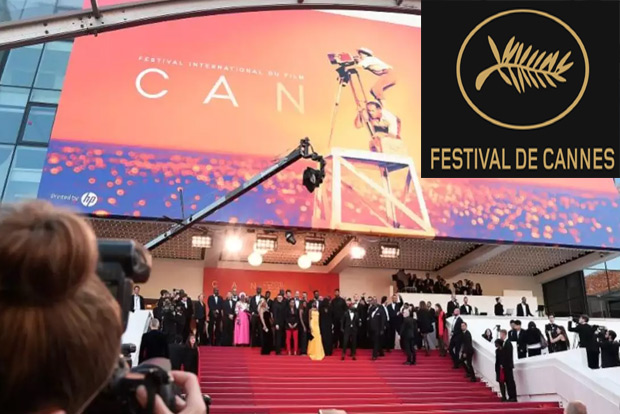Begin typing your search...
Curtailing of culture: A year sans Cannes - What is the future of film festivals?
There will be no red carpet this year and no industry schmoozing: The Cannes Film Festival simply won’t be taking place this year.

Chennai
The festival was scheduled to start May 12 and end May 23, but due to the pandemic, all plans are off the table. Initially, the idea was to postpone the festival until early summer, but safely holding a large event so soon was deemed impossible.
As an alternative, many film festivals are going digital, but for Cannes, a shift to online screenings was out of the question: “(For) Cannes, its soul, its history, its efficiency, it’s a model that wouldn’t work. What is a digital festival?” festival director Thierry Fremaux told US film industry magazine Variety.
“Films by Wes Anderson or Paul Verhoeven on a computer? Discovering Top Gun 2 or (Pixar’s) Soul elsewhere than in [a] theater? These films have been postponed to be shown on a big screen; why would we want to show them before, on a digital device?” he said, hinting at some of the films which were to premiere on the French Riviera this year.
Smaller festivals have more flexibility. May is a peak time for film festivals in Germany and typically there would be four major film events around the country, in Oberhausen, Stuttgart, Wiesbaden and Munich. They, too, were cancelled due to the pandemic. But unlike Cannes, they are proposing alternatives. Programs will be offered online, and some are scheduled for the fall when they can hopefully have an audience again.
The 27th International Stuttgart International Festival of Animated Film took place May 5-10 and garnered a positive reaction. “We started the festival week cautiously due to a lack of experience, and also since we didn’t have any role models to look to,” explains artistic director Ulrich Wegenast. “However, we noticed on the first day that our expectations were far exceeded. Both the views of the opening film in the live stream and the tickets sold show us that our offer was well-received.”
The festival screened more than 250 animated films online, including almost the entire competition program. Dieter Krauss, commercial director of the festival, is optimistic about the future: “We will definitely incorporate this experience and the know-how we have built up into the planning of the next festival. Hybrid festival formats will offer the opportunity to broaden and internationalize our outreach even more.”
Online doesn’t mean free
A similar approach was taken in Munich for its DOK.fest, dedicated to documentary film and held May 6-24. After the standard festival was cancelled, the decision was made to produce an online edition. “The number of online ticket purchases already exceeded our expectations at the beginning of the festival. This shows us that people absolutely want to see these socially relevant and artistically demanding documentary films,” says DOK.fest director Daniel Sponsel. They are also willing to pay for it: “Cinema must not be free on the Internet either,” says Sponsel.
Looking to the future, however, he says: “The place of a film festival remains the cinema. We are very much looking forward to the next festival editions, where we can laugh or be moved together again. But we could imagine showing selected films online between festivals, over the course of the year, in other words, offering a small curated program.”
— This article has been provided by Deutsche Welle (DW/dw.com)
Visit news.dtnext.in to explore our interactive epaper!
Download the DT Next app for more exciting features!
Click here for iOS
Click here for Android
Next Story



